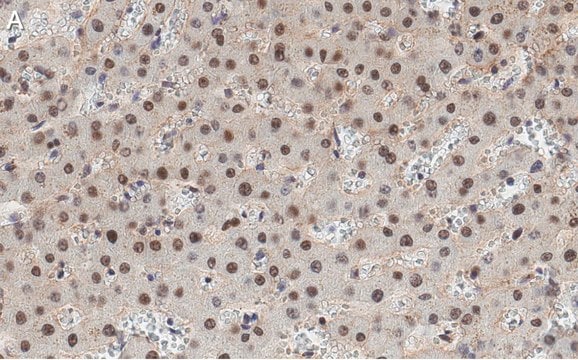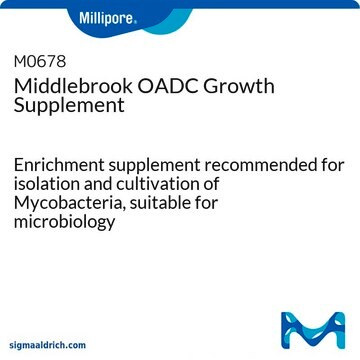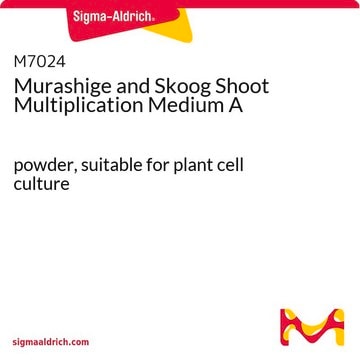Wichtige Dokumente
H0665
Monoclonal Anti-Hepatocyte Growth Factor antibody produced in mouse
clone 24516, purified immunoglobulin, lyophilized powder
Synonym(e):
Anti-HGF
About This Item
Empfohlene Produkte
Biologische Quelle
mouse
Qualitätsniveau
Konjugat
unconjugated
Antikörperform
purified immunoglobulin
Antikörper-Produkttyp
primary antibodies
Klon
24516, monoclonal
Form
lyophilized powder
Speziesreaktivität
human
Methode(n)
capture ELISA: 2-8 μg/mL
western blot: 1-2 μg/mL
Isotyp
IgG1
UniProt-Hinterlegungsnummer
Lagertemp.
−20°C
Posttranslationale Modifikation Target
unmodified
Angaben zum Gen
human ... IL4(3565)
Suchen Sie nach ähnlichen Produkten? Aufrufen Leitfaden zum Produktvergleich
Allgemeine Beschreibung
Monoclonal Anti-Hepatocyte Growth Factor recognizes human HGF. The antibody shows less that 0.25% cross-reactivity with recombinant human Macrophage Stimulating Protein (MSP).
Immunogen
Anwendung
Physikalische Form
Haftungsausschluss
Sie haben nicht das passende Produkt gefunden?
Probieren Sie unser Produkt-Auswahlhilfe. aus.
Ähnliches Produkt
Lagerklassenschlüssel
13 - Non Combustible Solids
WGK
WGK 1
Flammpunkt (°F)
Not applicable
Flammpunkt (°C)
Not applicable
Persönliche Schutzausrüstung
Eyeshields, Gloves, type N95 (US)
Analysenzertifikate (COA)
Suchen Sie nach Analysenzertifikate (COA), indem Sie die Lot-/Chargennummer des Produkts eingeben. Lot- und Chargennummern sind auf dem Produktetikett hinter den Wörtern ‘Lot’ oder ‘Batch’ (Lot oder Charge) zu finden.
Besitzen Sie dieses Produkt bereits?
In der Dokumentenbibliothek finden Sie die Dokumentation zu den Produkten, die Sie kürzlich erworben haben.
Unser Team von Wissenschaftlern verfügt über Erfahrung in allen Forschungsbereichen einschließlich Life Science, Materialwissenschaften, chemischer Synthese, Chromatographie, Analytik und vielen mehr..
Setzen Sie sich mit dem technischen Dienst in Verbindung.








